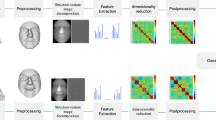Abstract
In recent years, the increasing prevalence of digital imagery has heightened the need for robust methods to authenticate and analyze images. The proposed framework focuses on identifying image duplications and applies advanced image processing techniques to boost the accuracy and efficiency of reconstructing phylogeny trees. Selected for its cultural diversity, the Indian Movie Face collection offers a unique set of challenges and opportunities for analysis. Image phylogeny, which involves tracing the evolutionary relationships among multiple images, is becoming increasingly vital in digital forensics and image analysis. Various transformation methods, including Cosine, Gaussian, Wavelet, and Fourier transforms, are utilized to enhance the framework. The performance of this framework is benchmarked against existing methods using standard metrics such as accuracy, precision, recall, and the F1 score. Results highlight the framework’s effectiveness, particularly in addressing the unique challenges presented by the Indian Movie Face and Labelled Faces in the Wild collections.


















Similar content being viewed by others
Data availability
No datasets were generated or analysed during the current study.
References
Dias, Z., Rocha, A., Goldenstein, S.: First steps toward image phylogeny. In 2010 IEEE International Workshop on Information Forensics and Security (pp. 1–6). IEEE (2010)
Bestagini, P., Tagliasacchi, M., Tubaro, S.: Image phylogeny tree reconstruction based on region selection. In: 2016 IEEE International Conference on Acoustics, Speech and Signal Processing (ICASSP), Shanghai, China, pp. 2059–2063, (2016) https://doi.org/10.1109/ICASSP.2016.7472039
Setty, S., Husain, M., Beham, P., Gudavalli, J., Kandasamy, M., Vaddi, R., Jawahar, C. V.: Indian movie face database: a benchmark for face recognition under wide variations. In 2013 fourth national conference on computer vision, pattern recognition, image processing and graphics (NCVPRIPG) (pp. 1–5). IEEE (2013)
Dias, Z., Goldenstein, S., Rocha, A.: Large-scale image phylogeny: tracing image ancestral relationships. IEEE Multimedia 20(3), 58–70 (2013)
Kennedy, L., Chang, S. F.: Internet image archaeology: Automatically tracing the manipulation history of photographs on the web. In: Proceedings of the 16th ACM International Conference on Multimedia (pp. 349–358) (2008)
Rodrigues, P., Pinto Borges, A., Sousa, A.: Authenticity as an antecedent of brand image in a positive emotional consumer relationship: the case of craft beer brands. EuroMed J. Bus. 17(4), 634–651 (2022). https://doi.org/10.1108/EMJB-03-2021-0041
Garhwal, A.S., Yan, W. Q., Narayanan, A.: Image phylogeny for simulating multiple print-scan. In: 2017 International Conference on Image and Vision Computing New Zealand (IVCNZ), Christchurch, New Zealand, pp. 1–6, (2017) https://doi.org/10.1109/IVCNZ.2017.8402504.
Dias, Z., Rocha, A., Goldenstein, S.: Image phylogeny by minimal spanning trees. IEEE Trans. Inf. Forensics Secur. 7(2), 774–788 (2011)
PhyloTraVis: A New Approach to Visualization of the Phylogenetic Tree, https://link.springer.com/article/https://doi.org/10.1134/S0361768822030045
Bestagini, P. et al.: An overview on video forensics. In: 2012 Proceedings of the 20th European Signal Processing Conference (EUSIPCO), pp. 1229–1233 (2012)
De Rosa, A., Uccheddu, F., Costanzo, A., Piva, A., Barni, M.: Exploring image dependencies: a new challenge in image forensics. In Media forensics and security II (Vol. 7541, pp. 337–348). SPIE (2010)
Li, Y., Bi, Y., Zhang, W., Ren, J., Chen, J.: M2GF: multi-scale and multi-directional Gabor filters for image edge detection. Appl. Sci. 13(16), 9409 (2023). https://doi.org/10.3390/app13169409
Le Philippe, N., Puech, W., Fiorio, C.: Phylogeny of JPEG images by ancestor estimation using missing markers on image pairs. In: 2016 Sixth International Conference on Image Processing Theory, Tools and Applications (IPTA) (pp. 1–6). IEEE (2016)
Wang, Z., Bovik, A.C., Sheikh, H.R., Simoncelli, E.P.: Image quality assessment: from error visibility to structural similarity. IEEE Trans. Image Process. 13(4), 600–612 (2004)
New taxonomic framework for Arthrodermataceae: a comprehensive analysis based on their phylogenetic reconstruction, divergence time estimation, phylogenetic split network, and phytogeography, https://link.springer.com/article/https://doi.org/10.1007/s10482-022-01774-0
Veronika, T., Jie, C.: Directed Acyclic Graph Neural Networks. Machine Learning (cs.LG); Artificial Intelligence (cs.AI), 2021, https://doi.org/10.48550/arXiv.2101. 07965
Banerjee, S., Ross, A.: Face phylogeny tree using basis functions. IEEE Trans. Biometrics, Behavior, Identity Sci. 2(4), 310–325 (2020). https://doi.org/10.1109/TBIOM.2020.2983321[x]
Joy, A., Buisson, O., Frelicot, C.: Content-based copy retrieval using distortion-based probabilistic similarity search. IEEE Tran. Multimedia 9(2), 293–306 (2007)
Nur A. K., Shahril I. S., Ahmad I. M. Y., Intan R. I., Hedzlin Z.: A honey badger algorithm for optimal sizing of an AC coupled hybrid stand-alone photovoltaic system, Energy Reports, Volume 8, Supplement 10,2022,Pages 511–520,ISSN 2352–4847,https://doi.org/10.1016/j.egyr.2022.05.192.
Approaches to the Detection of Hybridization Events and Genetic Introgression upon Phylogenetic Incongruencehttps://link.springer.com/article/https://doi.org/10.1134/S2079086422030045
Rusia, M.K., Singh, D.K.: A comprehensive survey on techniques to handle face identity threats: challenges and opportunities. Multimed Tools Appl 82, 1669–1748 (2023)
P. Harmanec, H. Bozic, “Useful transformations between photometric systems”, Journal of Astronomy and Astrophysics, https://doi.org/10.1051/0004-6361:20010205
Sara, U., Akter, M., Uddin, M.S.: Image quality assessment through FSIM, SSIM, MSE and PSNR—a comparative study. J. Comput. Commun. (2019). https://doi.org/10.4236/jcc.2019.73002
Author information
Authors and Affiliations
Contributions
Hemalata mote corresponding author implemented the idea using machine learning algorithm The main aim of this article is to identify the duplication of images. Whenever we are copying any images from the original package, even if we are sending any image outside the gallery for image identification.
Corresponding author
Ethics declarations
Conflict of Interest
The authors declare no competing interests.
Additional information
Publisher's Note
Springer Nature remains neutral with regard to jurisdictional claims in published maps and institutional affiliations.
Rights and permissions
Springer Nature or its licensor (e.g. a society or other partner) holds exclusive rights to this article under a publishing agreement with the author(s) or other rightsholder(s); author self-archiving of the accepted manuscript version of this article is solely governed by the terms of such publishing agreement and applicable law.
About this article
Cite this article
Mote, H., Kulkarni, S. Biometric face phylogeny tree reconstruction using optimal texture extraction model. SIViP 19, 337 (2025). https://doi.org/10.1007/s11760-025-03926-x
Received:
Revised:
Accepted:
Published:
DOI: https://doi.org/10.1007/s11760-025-03926-x




